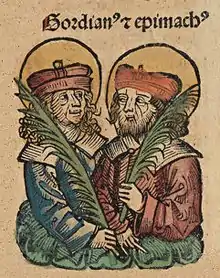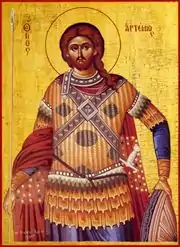| Millennium: | 1st millennium |
|---|---|
| Centuries: | |
| Decades: | |
| Years: |
| 362 by topic |
|---|
| Leaders |
| Categories |
|
| Gregorian calendar | 362 CCCLXII |
| Ab urbe condita | 1115 |
| Assyrian calendar | 5112 |
| Balinese saka calendar | 283–284 |
| Bengali calendar | −231 |
| Berber calendar | 1312 |
| Buddhist calendar | 906 |
| Burmese calendar | −276 |
| Byzantine calendar | 5870–5871 |
| Chinese calendar | 辛酉年 (Metal Rooster) 3059 or 2852 — to — 壬戌年 (Water Dog) 3060 or 2853 |
| Coptic calendar | 78–79 |
| Discordian calendar | 1528 |
| Ethiopian calendar | 354–355 |
| Hebrew calendar | 4122–4123 |
| Hindu calendars | |
| - Vikram Samvat | 418–419 |
| - Shaka Samvat | 283–284 |
| - Kali Yuga | 3462–3463 |
| Holocene calendar | 10362 |
| Iranian calendar | 260 BP – 259 BP |
| Islamic calendar | 268 BH – 267 BH |
| Javanese calendar | 244–245 |
| Julian calendar | 362 CCCLXII |
| Korean calendar | 2695 |
| Minguo calendar | 1550 before ROC 民前1550年 |
| Nanakshahi calendar | −1106 |
| Seleucid era | 673/674 AG |
| Thai solar calendar | 904–905 |
| Tibetan calendar | 阴金鸡年 (female Iron-Rooster) 488 or 107 or −665 — to — 阳水狗年 (male Water-Dog) 489 or 108 or −664 |
Year 362 (CCCLXII) was a common year starting on Tuesday (link will display the full calendar) of the Julian calendar. At the time, it was known as the Year of the Consulship of Mamertinus and Nevitta (or, less frequently, year 1115 Ab urbe condita). The denomination 362 for this year has been used since the early medieval period, when the Anno Domini calendar era became the prevalent method in Europe for naming years.
Events
By place
Roman Empire
- July 18 – Emperor Julian arrives at Antioch with an expeditionary force (60,000 men), and stays there for nine months, to launch a campaign against the Persian Empire. He secures the co-operation of King Arsaces of Armenia, who fights a bloody guerrilla war against the Persians.
- Julian builds a fleet of 50 warships, and more than 1,000 transport boats at Samosata, for his expedition in Persia against King Shapur II the Great.
- An earthquake strikes Nicaea (Turkey).
- An earthquake strikes Al-Karak (Jordan).
By topic
Religion
- February 21 – Athanasius returns to Alexandria and convenes a council, at which he appeals for unity among Christians who differ in terminology, but Emperor Julian orders Athanasius to leave Alexandria. He will remain in exile in Upper Egypt, until after Julian's death the next year.
- October 22 – The temple of Apollo at Daphne, outside Antioch, is destroyed in a mysterious fire.
Births
- Flavia Maxima Constantia, daughter of Constantius II (approximate date)
- Mesrop Mashtots, Armenian linguist (d. 440)
- Jin Xiaowudi, emperor of the Eastern Jin Dynasty (d. 396)
Deaths

Saints Gordianus and Epimachus
.jpg.webp)
Saint Dorotheus of Tyre

Saint Basil of Ancyra

Saint Donatus of Arezzo

Saint Eliphius

Saint Artemis

Saint Gemellus of Ancyra
- January 1 – Paulus Catena, Roman politician
- February 25 – Reginos, Greek Orthodox bishop and saint
- May 10 – Gordianus and Epimachus, Roman Catholic priests, martyrs and saints
- June 5 – Dorotheus of Tyre, Roman Catholic bishop and martyr (b. 255)
- June 27 – Crispus, Crispinianus, and Benedicta, Roman Catholic, priests, martyrs and saints
- June 28 – Basil of Ancyra, Byzantine Orthodox bishop and saint
- August 5 – Eusignius of Antioch, Byzantine Orthodox bishop and martyr (b. 252)
- August 7 – Donatus of Arezzo, Roman Catholic bishop and saint
- October 16 – Eliphius, Roman Catholic priest and saint
- October 20
- Artemius, Egyptian Orthodox martyr and saint
- Theodoret of Antioch, Syrian Christian priest and martyr
- December 10 – Gemellus of Ancyra, Byzantine Orthodox bishop and saint
Date unknown
References
This article is issued from Wikipedia. The text is licensed under Creative Commons - Attribution - Sharealike. Additional terms may apply for the media files.
